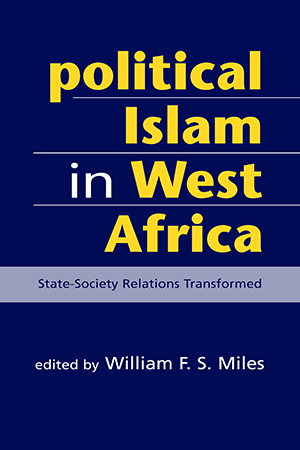William F.S. Miles, editor
Long before the September 11 attacks galvanized Western attention on what has variously been called political Islam, Islamic fundamentalism, and Islamism, African nations with sizeable Muslim populations were experiencing significant transformations in the relationship between religion and state.
Political Islam in West Africa explores those ongoing transformations in key countries of the Sahel region.
Each country chapter provides both historical context and an examination of the changing nature of domestic politics and foreign policy in the post-September 11 world. Introductory and concluding chapters provide additional context and highlight overarching themes. A notable feature of the book is a comprehensive bibliography of Islamism in West Africa.
William F.S. Miles is professor of political science at Northeastern University. His numerous publications on Africa include Hausaland Divided: Colonialism and Independence in Nigeria and Niger and Elections in Nigeria: A Grassroots Perspective.
"This is an outstanding volume."—John N. Paden, Perspectives on Politics
"An important corrective to this often overlooked part of the umma (Islamic community).... The volume manages both to explicate the autonomy of intra-Muslim relations in the West African context, and to account for the specificity of state-mosque relations in different national contexts.... Scholars and students of contemporary West African politics, religion, and civil society will find it an invaluable resource."—Michal Ran, African Studies Review
"A fascinating and nuanced survey of the region's current Islamization."—Nicolas van de Walle, Foreign Affairs
"This volume begins to fill a large gap in the literature on political Islam.... The country studies provide a clear sense of the dramatic transformations that are occurring in West African politics and the practice of Islam."—Linda Beck, University of Maine, Farmington
"A unique contribution.... Leading scholars in the field explore the changing role of Islam in state-society relations in predominantly Muslim West Africa."—Ousame Kane, Columbia University






